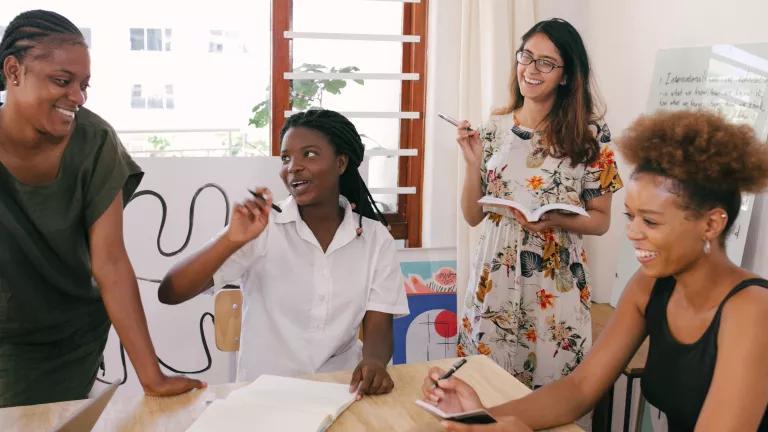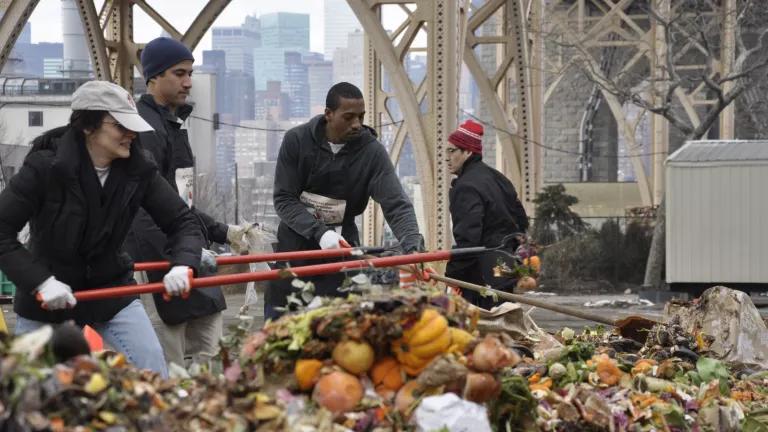'Will all the mayors in the room please stand up to be recognized?' It was indeed a time for cities to take a bow in no less a hallowed institution than the U.S. Department of State, for their important role in the global fight against the effects of climate change.
The invitation above was offered by Assistant U.S. Secretary of State, Evan Ryan, at the Our Cities Our Climate event two weeks ago, which was organized jointly by State Department and Bloomberg Philanthropies. Together, and with significant input from former New York City Mayor Michael Bloomberg, they were validating and furthering the power of cities to combat climate change while also improving residents' quality of life, creating new jobs, and improving public health. For three days, the program brought together city sustainability managers and mayors from across the country and around the world to learn from each other and advance best practices in approaching how best to wisely use natural resources and mitigate the negative effects of climate change. Participants included Orlando Mayor Buddy Dyer; and Anchorage Mayor Ethan Berkowitz; as well as Mexico City Mayor Miguel Mancera; Lagos, Nigeria Mayor Akinwunmi Ambode; and Mayor Fumiko Hayashi of Yokohama, Japan.
In the countdown to the Paris international climate talks this December, much attention has been focused on national governments and the pledges they have made to cut their countries' dangerous greenhouse gas emissions. Cities can help spearhead these cuts because, after all, cities are responsible for more than 70 percent of global-warming pollution worldwide. They are also the places where the majority of the world's people live and where leadership efforts can reap huge rewards.
"Global challenges used to be the exclusive domain of heads of state," Mayor Bloomberg said at the State Department luncheon that was one of the highlights of the three-day program. (Mayor Bloomberg is also now the UN Secretary General's Special Envoy for Cities and Climate Change.) "This challenge is different," he continued. "In fact, I think it's safe to say that climate change may now be the first global problem where success will depend on how local services are delivered."
Energy, transportation, and waste disposal are prime among them. And making those more sustainable will only benefit cities, Mayor Bloomberg said. "When a city has cleaner air, more people want to live there and more companies want to do business there."
Sharing the podium with the mayor was U.S. Secretary of State John Kerry. "Decades ago," Secretary Kerry noted, "U.S. Supreme Court Justice Louis Brandeis famously referred to our states as 'laboratories of democracy.' Today," he continued, "more and more of our cities are becoming 'laboratories of leadership.'"
In fact, already, more than 200 cities around the world, including 60 in the U.S., have joined the international Compact of Mayors, pledging to reduce their cities' greenhouse gas emissions, to track this progress, and to make their cities more resilient in the face of climate change. Together, these cities are home to almost 270 million, 3.7 percent of the world's population.
I'm proud to say that nine of the 10 cities in the NRDC Urban Solutions City Energy Project, also supported by funding from Bloomberg Philanthropies and in partnership with the Institute of Market Transformation, are signatories to this important effort.
Recognizing and facilitating the power of cities to combat climate change while they make urban areas better places to live, work and play is something for which we should commend both Bloomberg Philanthropies and the State Department. As Mayor Bloomberg said at the event: "The more we help mayors and city officials innovate and collaborate, the more progress we can all make."



